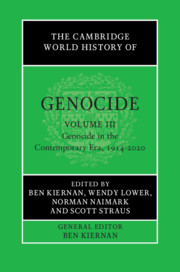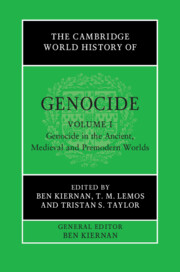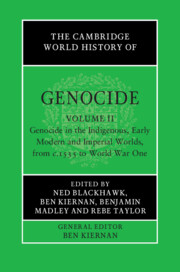3 results in The Cambridge World History of Genocide

The Cambridge World History of Genocide
-
- Published online:
- 23 June 2023
- Print publication:
- 04 May 2023

The Cambridge World History of Genocide
-
- Published online:
- 23 June 2023
- Print publication:
- 04 May 2023

The Cambridge World History of Genocide
-
- Published online:
- 23 June 2023
- Print publication:
- 04 May 2023

